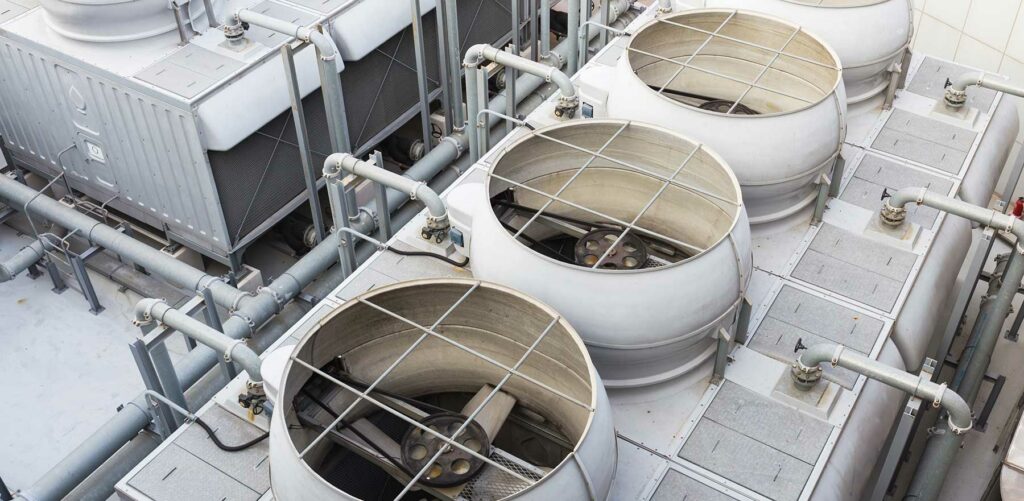The new study by the Klade technical office on biocides in evaporative cooling systems shows a need for action.
A study commissioned by the Vienna Environmental Ombudsman’s Office and recently published deals with the use of biocides in cooling systems: Open evaporative cooling systems in particular are often colonized by dangerous biofilms, which can also contain Legionella or Pseudomonas bacteria. Due to the permanent contact of the cooling water with the ambient air, these can sometimes travel for kilometers and lead to severe or even fatal lung infections if inhaled by local residents. Such cases have been documented in numerous studies and were also documented by AGES in Vienna in 2007. The study provides the following findings, among others:
- The use of biocides in evaporative cooling systems is a black box in Austria
- The locations of potentially dangerous cooling systems are largely unknown
- Germany can be seen as a role model as far as official regulation is concerned.
- The study compares active ingredients and systems
and recommends, in addition to the elimination of structural defects and the very regular chemical and technical maintenance of these systems, above all oxidizing processes with low AOX formation. These include the production of active chlorine by electrolysis from sodium chloride on site or the use of chlorine dioxide that is as pure as possible. Unfortunately, there are still few references in Austria for processes that use environmentally friendly hydrogen peroxide or that work with monochloramine or ozone. However, the example of the Vienna Twin Tower, where an ozonization system was installed, shows that under the right conditions, both the use of biocides relevant to wastewater and (usually environmentally harmful) corrosion inhibitors can be dispensed with. The system paid for itself in two to three years due to the large savings in (environmentally toxic) chemicals.
The use of the biocidal active ingredients CMIT/MIT, DBNPA and glutaraldehyde is largely discouraged in the study by the Klade technical office, not least for reasons of employee protection.

